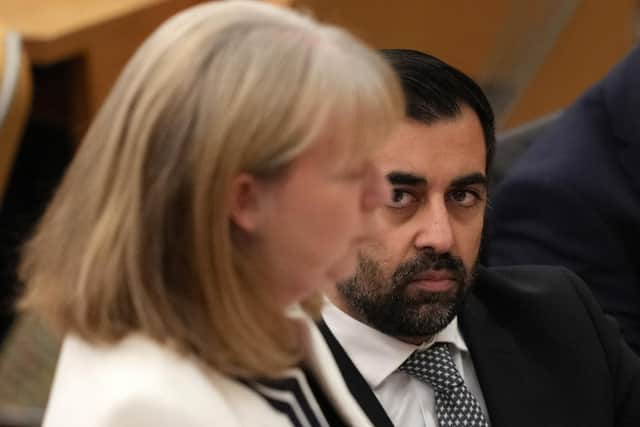Scottish Budget exposes SNP’s failure to achieve meaningful reforms – Martyn McLaughlin
As with most Budget speeches, Shona Robison’s address at Holyrood this week was specked with several predictable buzzwords that circled the numbers on the Scottish political bingo card. “Stand up for Scotland”? Check. “Westminster austerity”? Yup. Shout-outs for the police, nurses, and teachers? Present.
Yet amidst the usual gruel served up, one word in particular was conspicuous in its audacity. Reform. The Finance Secretary said that, together with investment, reform would be the guiding light of the Scottish Government. There was, of course, an important caveat. “Reform takes time,” Ms Robison observed.
Advertisement
Hide AdAdvertisement
Hide AdTo which the obvious question is, how long exactly? The SNP has held the reins of power for 16 years, during which time it has failed to develop a comprehensive roadmap for reform of public services in order to ensure they are not just on firm financial footing, but fit for purpose. Seven years have passed since the government committed to producing a consolidated account to cover the devolved public sector, and it would be charitable to describe the progress to date as glacial. In the wake of the economic hammer blows dealt by the pandemic and Brexit, the need for such a framework is more acute than ever, and without it, prudent, long-term financial planning is severely impaired.
Council tax freeze desperate electioneering
In this context, the bluster in Ms Robison’s Budget announcement was almost offensive, none more so than her insistence that the headline income tax rises demonstrated how the SNP was “supporting public services”. Those rises will make little substantial impact to services that are lunging from one crisis to the next; indeed, according to the Scottish Fiscal Commission, the revenues will only amount to £82 million. That is a little over half the revenue budget for Clackmannanshire Council. In other words, in the face of a £1.5 billion black hole in Scotland’s public finances, it is not a game-changer.
In that context, accusations that the SNP is prioritising politics over economics hold considerable sway, and the fact that an administration pleading poverty saw fit to throw £144m at a council tax freeze – a desperate, electioneering policy that will disproportionately benefit the well off – further makes a mockery of First Minister Humza Yousaf’s claims that his government is committed to progressive taxation policies.
The reality is that any transformation of how Scotland’s public services are financed can best be achieved with a root-and-branch review of how revenues are raised. The most obvious starting point is a generational overhaul of the council tax system. Famously, that was one of the pledges made by Alex Salmond and Nicola Sturgeon in 2007, yet they could not deliver their goal of a local income tax.


With the party’s fortunes waning, and a general election looming, that issue is certain to remain stuck in the political logjam until 2026. Ms Robison is right that reform takes time. But it also requires political will. It increasingly looks like the SNP is either unable or unwilling to make such decisions.
Instead, it has chosen apply yet another sticking plaster to Scotland’s tattered public purse. The government has a certain amount of wriggle room to complain about a lack of money. There is no excuse, however, for the lack of vision.
Comments
Want to join the conversation? Please or to comment on this article.